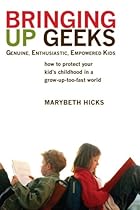As I said before, Ender's Shadow occurs at the same time as the events in Ender's Game and you could read either one first. Ender is the title character in Game and his "shadow" is a very brilliant and very young boy named Bean. Both books take place in the future after a failed invasion by an alien species. Earth is preparing for a second invasion by rounding up all the world's best young minds to train them to fight and lead the forthcoming battle.
It's in this setting that young Bean is cast as a destitute toddler in the seedy streets of Rotterdam. Without giving too much away he is eventually discovered and recruited by none other than a Catholic nun, Sister Carlotta. And we have a very positive impression of her! She exudes compassion, love, and concern. No knuckle rapping with rulers at all! Here's my favorite exchange from her (Carlotta speaks first):
"Do you know why Satan is so angry all the time? Because whenever he works a particularly clever bit of mischief, God uses it to serve his own righteous purposes."
"So God uses wicked people as his tools."
"God gives us the freedom to do great evil, if we choose. Then he uses his own freedom to create goodness out of that evil, for that is what he chooses."
"So in the long run, God always wins."
"Yes."
"In the short run, though, it can be uncomfortable."Throughout the book are subtle (and not so subtle) moral questions that arise, some of which include cloning, the rights of parents, the role of the state, limiting the number of children a family can have, war, abortion, the good of the few versus the good of the many, and whether we should be morally concerned about the possible eradication of an alien species.
Card even sprinkles Scripture throughout the book. Not always quoting it, but referring to it and to the stories in it. But my favorite instance is when Bean is about to make a very tough and horrible decision. He paraphrases 2 Samuel 19:1 which reads, "My son Absalom! My son, my son Absalom! If only I had died instead of you, Absalom, my son, my son!" (NAB). There's a lot of good context there, too, so don't read too much of that Bible passage if you want to avoid some spoilers in Ender's Shadow.
Card himself is not Catholic (he is a practicing Mormon), but the content in this novel is great. I love the story and the moral questions and I applaud the use of Scripture and the characterization of a Catholic nun who is actually Christ-like. Nowadays we see all to often the Church being the scapegoat for evil, a wolf in sheep's clothing. It goes to show that sometimes you find God in the most unexpected places.


